Review for 1911 Revolution
Introduction
Jackie Chan's hundredth movie! That is one hell of an achievement, and reason enough to watch 1911 Revolution. After all, I feel that I have been watching Jackie Chan films for most of my life, and watching his development from action star, to comedy superstar, to all-round dramatic actor is a worthwhile endeavour. It turns out that 1911 Revolution is a propaganda piece to mark the 100th anniversary (it was released in 2011) of the revolution that deposed the Qing dynasty, which, given the auspicious nature of anniversaries and coincidences, makes that 100th movie claim seem a little contrived. This doesn't matter all that much, as when it comes to recent history, I find that I am surprisingly ill-educated on the events of the Chinese Revolution.
At the start of the 20th Century, China was ruled by the Qing dynasty, perpetuating 3000 years of feudal government that kept the population stratified and ossified, peasants and serfs paying taxes and tributes all the way up the pyramid of governors and lords to the Emperor and the imperial court. While the rest of the world surged ahead in terms of scientific progress and cultural advancement, China remained stuck in the past, ripe for exploitation by the world's other powers. But there were those patriots both domestic and abroad who sought to change China for the better. Sun Yat-Sen was the political leader who would drive that change, and Huang Xing was his military commander, who would lead an army of revolutionaries against overwhelming odds. 1911 Revolution shows their journey from their initial faltering steps at the failed Guangzhou uprising, to the establishment of the first Chinese Republic.
Picture
1911 Revolution gets a 2.35:1 widescreen transfer at 1080p resolution. It's another great transfer from Cine Asia, with no problems that I could discern. The image is clear throughout, colour definition is excellent, and detail levels are high. Given the period look of the film, and of course the opulent scenes set in the Imperial court, this transfer truly does justice to the film. The early twentieth century is brought to vivid life here, in terms of production design and costumes, while the action sequences, mostly war scenes, have a brutal immediacy to them that is very effective.
Sound
The audio comes in the DTS-HD MA 5.1 variety, in both English and Mandarin. In a very useful change, and one that I have often thought should be implemented, there are two subtitle tracks. One translates just the Mandarin dialogue, the other echoes that translation, but also subtitles the English dialogue as well, making this disc very useful for fans that may be hard of hearing. I sampled the English dub to ensure its existence, but otherwise stuck to the original language track. The audio here is very good, with the dialogue clear throughout, and the action sequences making full use of the surround soundstage. The battle sequences are truly thunderous, without pushing the volume too high. The one oddity is that the end theme to the film seems as if it belongs in a Disney movie.
Extras
The animated menu follows the usual Cine Asia theme, scenes from the film playing with a menu bar at the top of the screen.
There are 12 Cine Asia trailers to peruse, including one for the forthcoming War of the Arrows.
The trailer gallery for 1911 Revolution has the UK, Hong Kong, International and Japanese theatrical trailers. There are also two TV commercials for the film here.
The Bey Logan audio commentary is here of course, and it's even more of an essential accompaniment than usual. He talks about the making of the film of course, and the film's cast. He also puts the film in its historical context, offering much of the Chinese history of the period. He also offers translations of text on screen that isn't translated in the subtitles, and most important of all, he talks about all the scenes that were left on the cutting room floor.
The rest of the extra features are all in SD format, beginning with the Hong Kong Press Conference - Interview with Jackie Chan, Li Bingbing, and Winston Chao. This lasts 33 minutes, and has the three stars of the film on stage for a Q & A session, as they talk about the film, their respective characters and the history. Note that there is a lot of flash photography in this featurette, and the audio is a tad muffled at times.
The Interview with Li Bingbing is a little less frenzied, as it's a face to face chat with the actress as she talks about her character for 6 minutes.
The Behind The Scenes Gallery lasts a total of 59 minutes, and comprises 11 separate featurettes. It's all b-roll footage without voice-over, although it's always clear from the context just what is going on. Various scenes of the film are covered, and more importantly, there is also a vast amount of footage being shot here that didn't make it to the final film.
Conclusion
I was disappointed by 1911 Revolution, and I feel that once again it's that reverence for historical figures that is the cause. Most historical accounts made in Hong Kong and Chinese cinema pay utmost respect to the characters, which often means a somewhat sanitised and idealised view of history. Somewhere along the way, the decision was taken to make 1911 Revolution, solely about the revolution, and what's left is little more than a dry recitation of historical events. The history is compelling, the production values are strong, and the performances are excellent. It's just that the character and the story have been excised from the film. It's a little tragic as the impression is that a proper movie does exist somewhere. It's just not on this disc. After all, historical epics about the founding of nations are supposed to last three or even four hours. 1911 Revolution churns out its narrative in just over 90 minutes.
Right at the start of the film, when Sun Yat-Sen and Huang Xing are debating on who should lead the revolution and who should fight in it, the decision is made that Huang Xing travel to Guangzhou and Sun Yat-Sen travel to the West to gather support. Huang Xing is introduced to fellow revolutionary and nurse, Xu Zonghan, and the plan is for them to travel to mainland China posing as husband and wife. It's clear at this point that this ought to be the emotional core of the film, the characters we invest in as they face their trials and tribulations during the months and years of conflict. Except that this relationship has been all but excised from the film. We do catch glimpses of them from time to time, with their sham marriage at the start of the film, genuine affection for each other the next time we see them, married for real after that, and then expecting their first child. These are little glimpses though, and not enough to carry the film.
The characters are reduced to archetypes and truncated visions of perfection, or in the case of the Imperials, visions of corruption. Depth and insight is lost completely as a result. So with character excised, that leaves story, and the story of the Chinese revolution is one of the ebb and flow of battle, with the balance of power shifting between the two sides, and with outside and inside interests playing both sides off against each other. But yet again, this suffers in the edit as well. Most action scenes, indeed most battles are reduced to a few minutes, if not seconds of mayhem, before a caption appears telling us the outcome of the battle. Without the caption, the battle would make no sense, as we don't get the time to relate to any of the combatants, or indeed even decipher just which side is which.
This is the biggest problem with 1911 Revolution. It's been reduced to a set of short scenes topped off with captions explaining just what has happened. It's as dry a recitation of history as you can get, without turning off the television and just reading about it for yourself.
That's a shame, because you can still see some of the tantalising flesh that remains on this skeleton of a film. The few scenes of a corrupt Imperial court, the courtiers bowing to the Dowager Empress and telling her what she wants to hear are wonderfully shot, and impressively acted. In this tale of trench warfare with thousands of faceless soldiers dying, there is still one scene of pure Jackie Chan kung fu. There is this delicious scene of a former Imperial official press-ganged into commanding the revolutionary army at one point. There is also this amazing moment where Sun Yat-Sen, at a diplomatic luncheon in London, attempting to negotiate an end to foreign support of the Emperor, opts to serve everyone lunch, carving up a roast lamb. He likens each piece that he cuts to a portion of Chinese territory, and then pointedly tells the dignitaries that this is the last time that they can feast on China. It's moments like these that point out just how good 1911 could have been, which makes the final product a little heart-breaking as a result.
The action scenes need context, not captions. We need to understand the ebb and flow of battle, and to comprehend just what is happening at each moment during the revolution in China. Making sense of the battle sequences alone would probably double the length of the film. We also need character not archetypes. Again, pasting a caption over a brief glimpse of an actor is no substitute for developing the character. And of course we need the central relationship between Huang Xing and Xu Zonghan restored to the film. That would probably push the runtime past four hours, but that is how long an epic is supposed to be. What we get here really just feels like an extended trailer. Points for Jackie Chan's 100th film of course, points for the epic production values, and points for the few moments of entertainment that remain. Despite its dry recitation of history, it did hold the attention for its 100 minute runtime, but 1911 Revolution is still a disappointment.
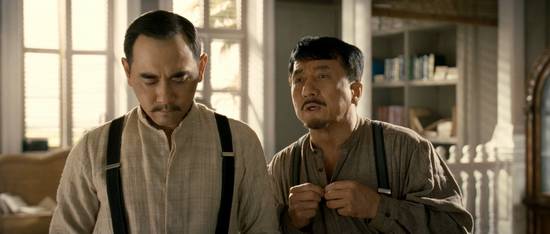
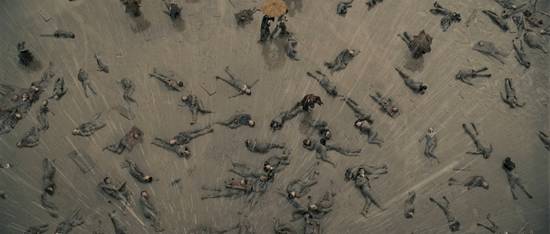
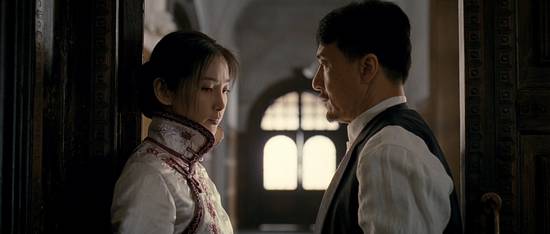
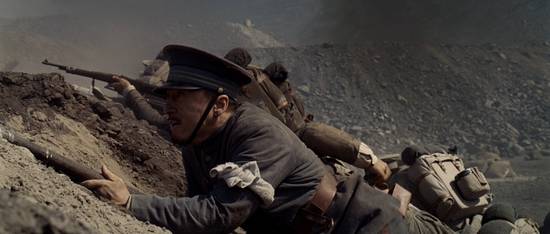
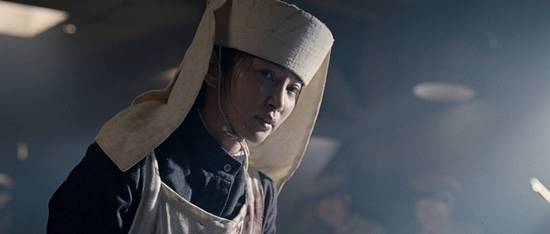
Your Opinions and Comments
Be the first to post a comment!